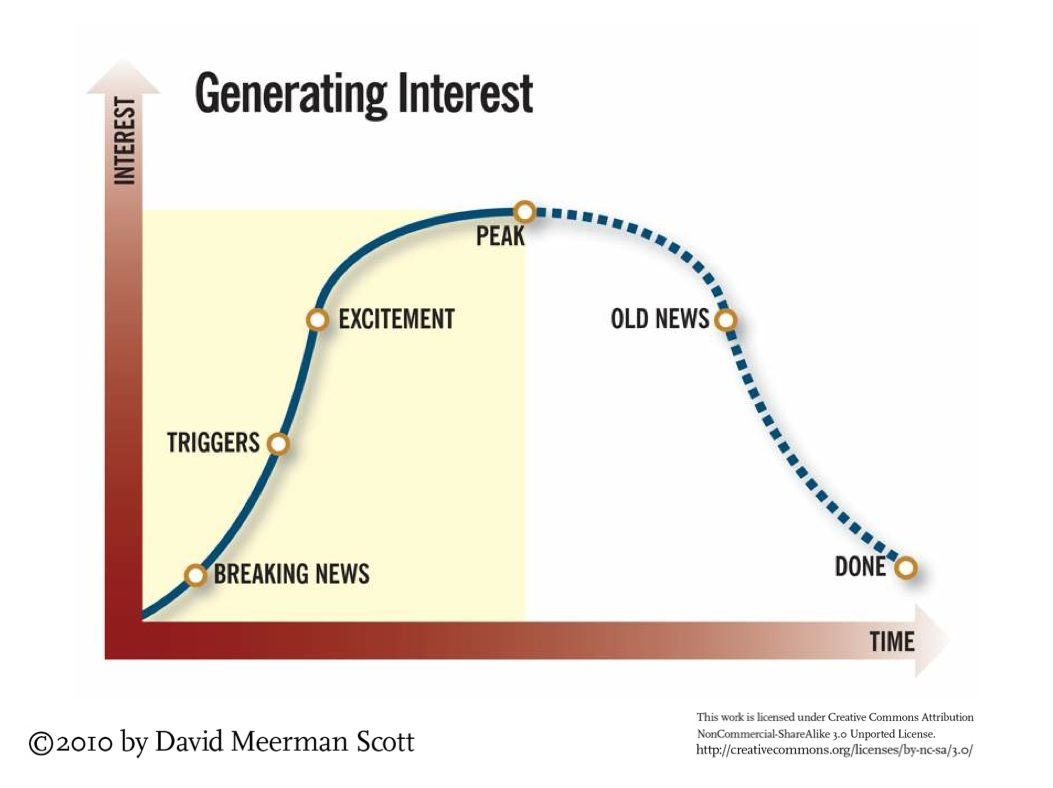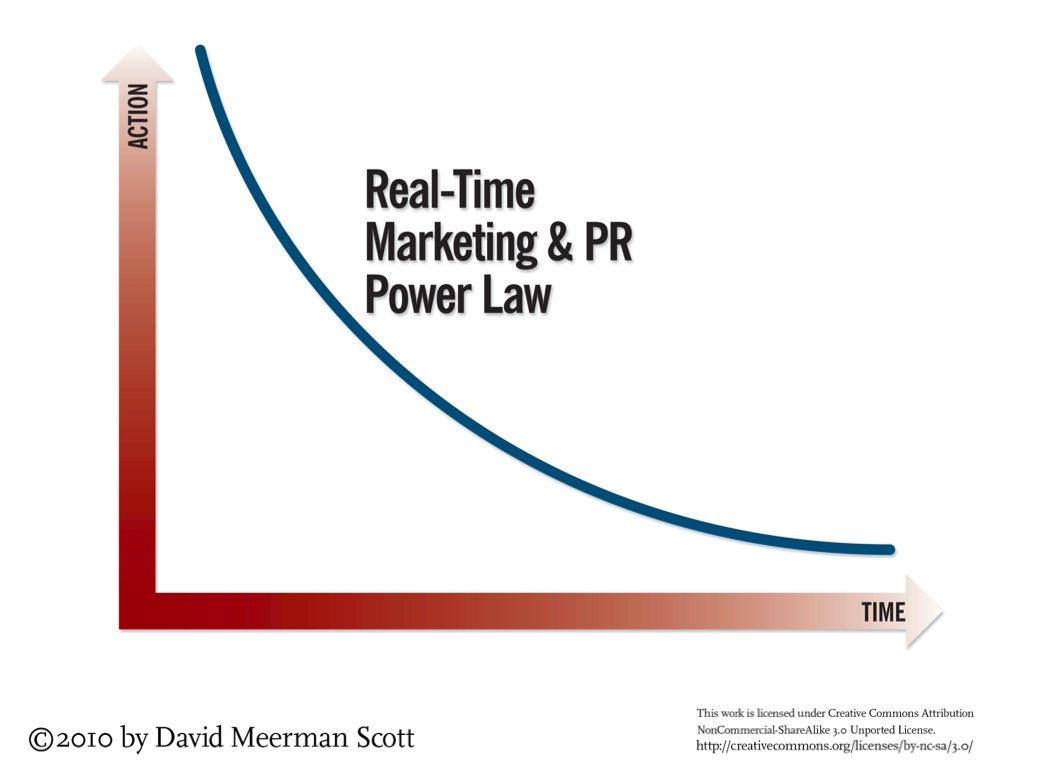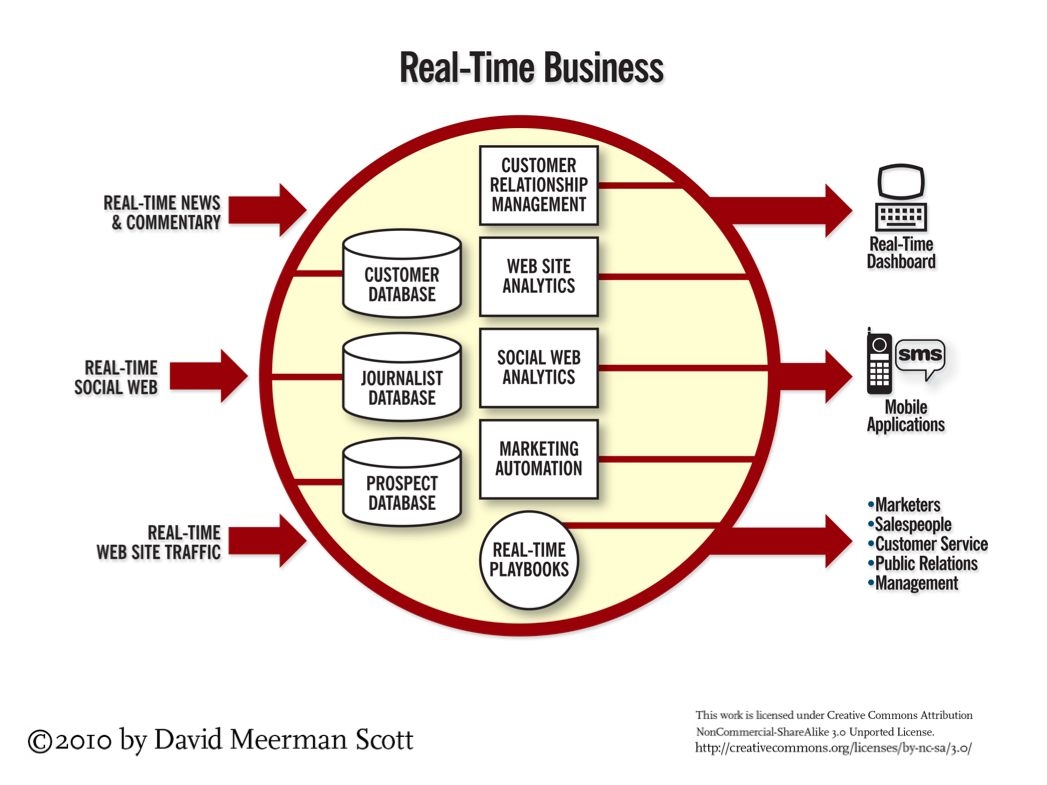(Editor’s Note: Marketing strategist and best-selling author, David Meerman Scott, will be the keynote speaker at our sister company’s MarketingSherpa Email Summit ’11 in January and every attendee will get a copy of his new book, “Real-Time Marketing & PR.” So we invited David to add his thoughts to the blog about email marketing. Here’s what he had to say…)
I travel all over the world, speaking to business audiences about Real-Time Marketing. That means I stay in a heck of a lot of hotels—40 or more a year. And because I do my own reservations online, I’m in an excellent position to observe how hotels communicate with customers via email after reservations are made.
This is a perfect example of an industry that screws up email marketing. The reason? Emails are sent on the hotel’s timeframe, not the customers. And it doesn’t matter what industry you’re in, the rules of real-time apply to you too.
Nearly all hotels send confirmation by e-mail soon after the booking is made. And a few send reminders a week or so before check-in. Typically, that’s all I get before a stay.

Do you send egotistical email?
Many hotels, though, bug me after a stay to request that I fill out a survey about my experience. I received this e-mail, ostensibly from Rakesh Sarna, a Hyatt executive:
I would like to take this opportunity to thank you for your stay with us at Grand Hyatt Mumbai from February 07 to February 11. We were delighted to have you as our guest and hope that your stay was most enjoyable.
Recently we invited you to complete a short survey regarding your stay. As a valued Gold Passport Member, we would be most grateful if you would take the time to provide us with your valuable feedback. This will be most helpful in assisting us to continue to refine and improve our level of service.
I never do these surveys because they are time-consuming for me and a lazy way for the hotels to get feedback. Note that Rakesh is talking about what he wants from me! How egotistical is that? Surveys might benefit companies, but they frequently piss off customers.
And don’t even get me started about the sales-focused emails sent by hotels all the time pimping their damned products!
What do your customers really want to hear from you?
 In all of your communication, think how it benefits the customer, not what’s in it for you. Increasingly, that means communicating in real-time.
In all of your communication, think how it benefits the customer, not what’s in it for you. Increasingly, that means communicating in real-time.
In the case of a hotel, it means that the email system is linked to the hotel’s reservation system and even to external data sources like weather reports.
In our hotel example, after the initial confirmation, customers could receive a series of messages as the stay approaches. That means making adjustments optimizing the timing of each email based on how far in advance each person is booking.
The program gets compressed, with certain e-mail dropping out, when the booking takes place shortly before the stay. It gets extended, with e-mail being added, if the booking takes place early.
If someone books golf or a spa treatment ahead of time, the system notes that. Airport transfers are noted too. And the email system works within the other hotel systems.
For example, if somebody makes a golf reservation by phone rather than online, this information is also added to the customer record and triggers an instant adjustment to the e-mail communications program. I hate it when a hotel sends out an offer for something like golf when you’re already booked for golf. When this happens, I roll my eyes and say “duh!” or something more colorful.
Because this contextual information specific to each person’s visit is updated constantly, communication is timely, relevant, and appreciated.
Real-Time Marketing as lead nurturing
Clearly, connecting with customers in real time is an essential component to good marketing. After all, when someone has a great experience, they’re engaged. That’s all the more valuable considering that people can walk away from your company at any time. In the hotel business, consumers can usually cancel their reservations and go elsewhere. Effective communications help keep the guest “warm” between booking and check-in.
This is just a hotel example. The same real-time approach works in any industry if you have knowledge of how consumers interact with your company in real-time.

Related resources
Call for Entries: MarketingSherpa’s 6th Annual Email Marketing Awards
Email Summit ’11: Tackling the Top Email Challenges with All-New Research, Case Studies and Training – Save $300
Free Webinar with New Research: Top Email Tactics to Improve Relevancy & Deliverability – Today at 1:00 p.m. EST



David, taking your hotels example I wish hotels did this.
When a businessman arrives at a hotel the owner gives a quality box of chocolates to them when they leave in return for a mobile number. This box of chocolates contains a gourmet/spa/relaxing week end for two at $97. (Week ends being quiet in most business hotels). The businessman has something to give his wife, his wife opens the chocolates, she sees a gift voucher for very low cost week end away…the man gets an sms reminding him to book…etc. The wife is happy, the man is happy…and they all live happily ever after. Same approach keeps any client engaged in any business. It’s just a small touch which is a noticeable difference.
Boyd – in my experience of staying in hundreds of hotels in the past few years, hotels are so busy trying to sell you something that they forget how to be human.
Boyd seems to me what you propose will add to cost of rooms quite a bit unless they find way to partner with chocolate vompany who has same target customer. Love to hear case study.
David,
When I book my travel, I use an alternative email to confirm and book travel. I did this because I got irritating emails from hotels and then they would harvest my personal info for updates on their hotel. So, you might consider a backup email as a way to eliminate these requests for customer satisfaction surveys.